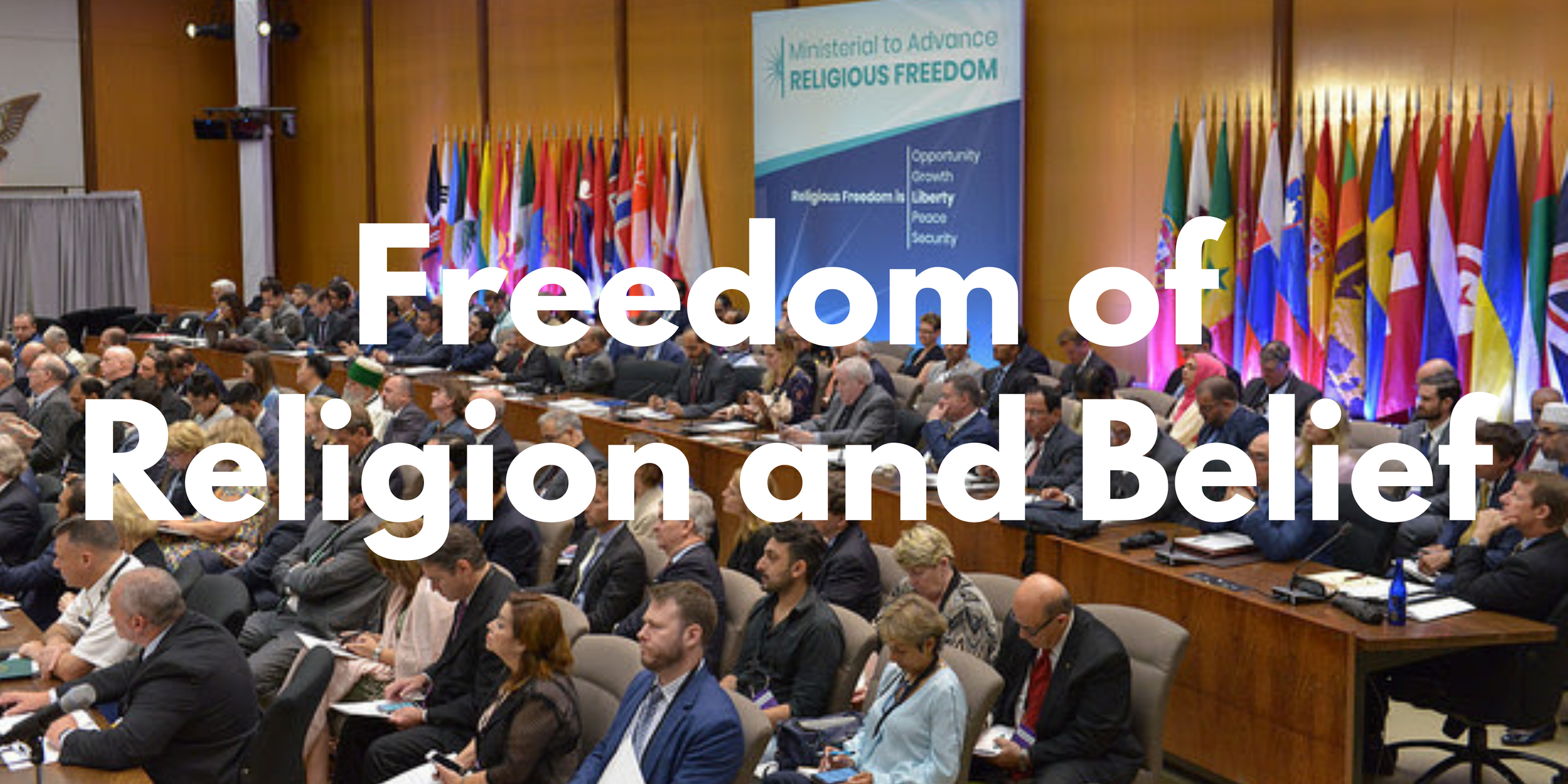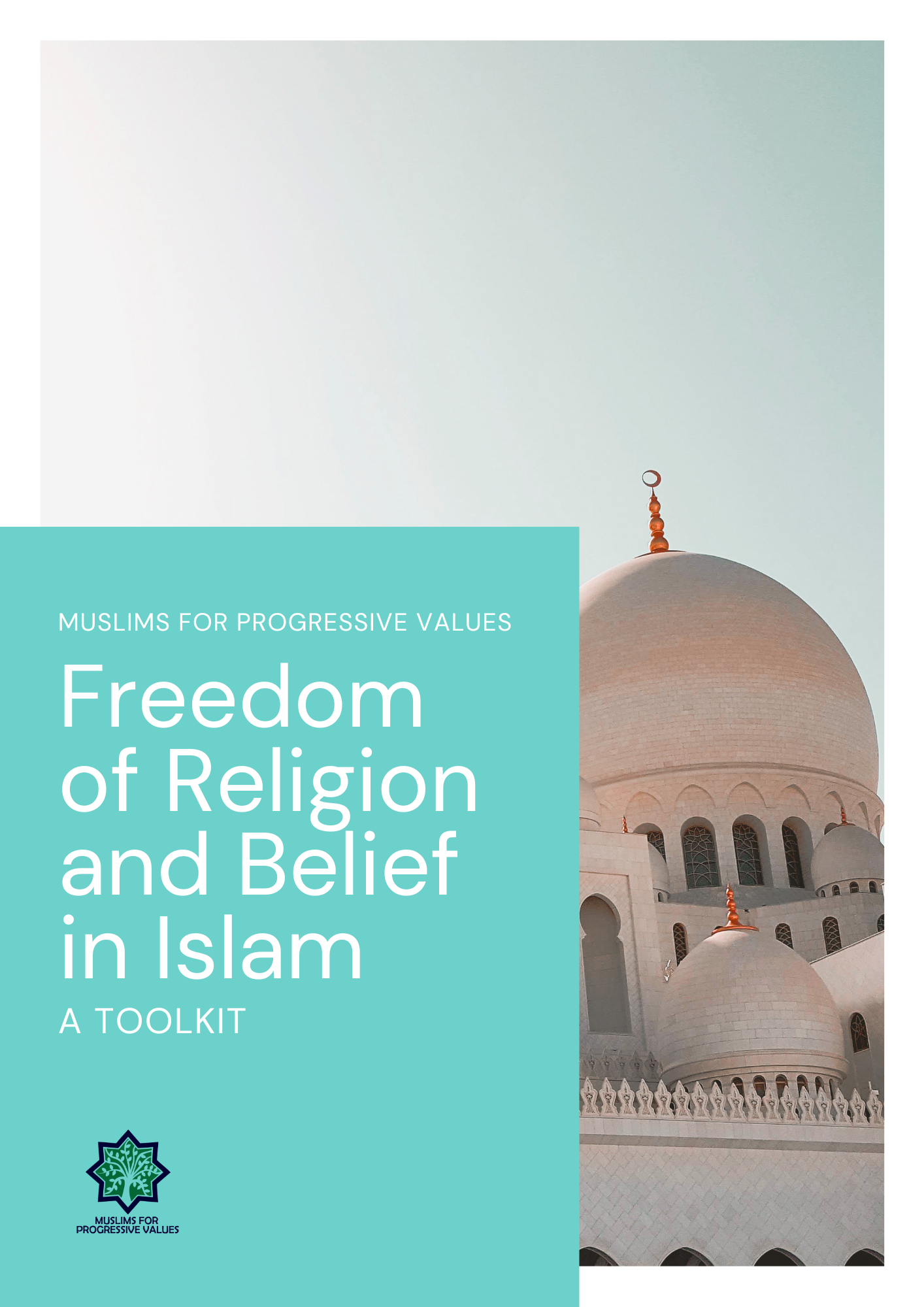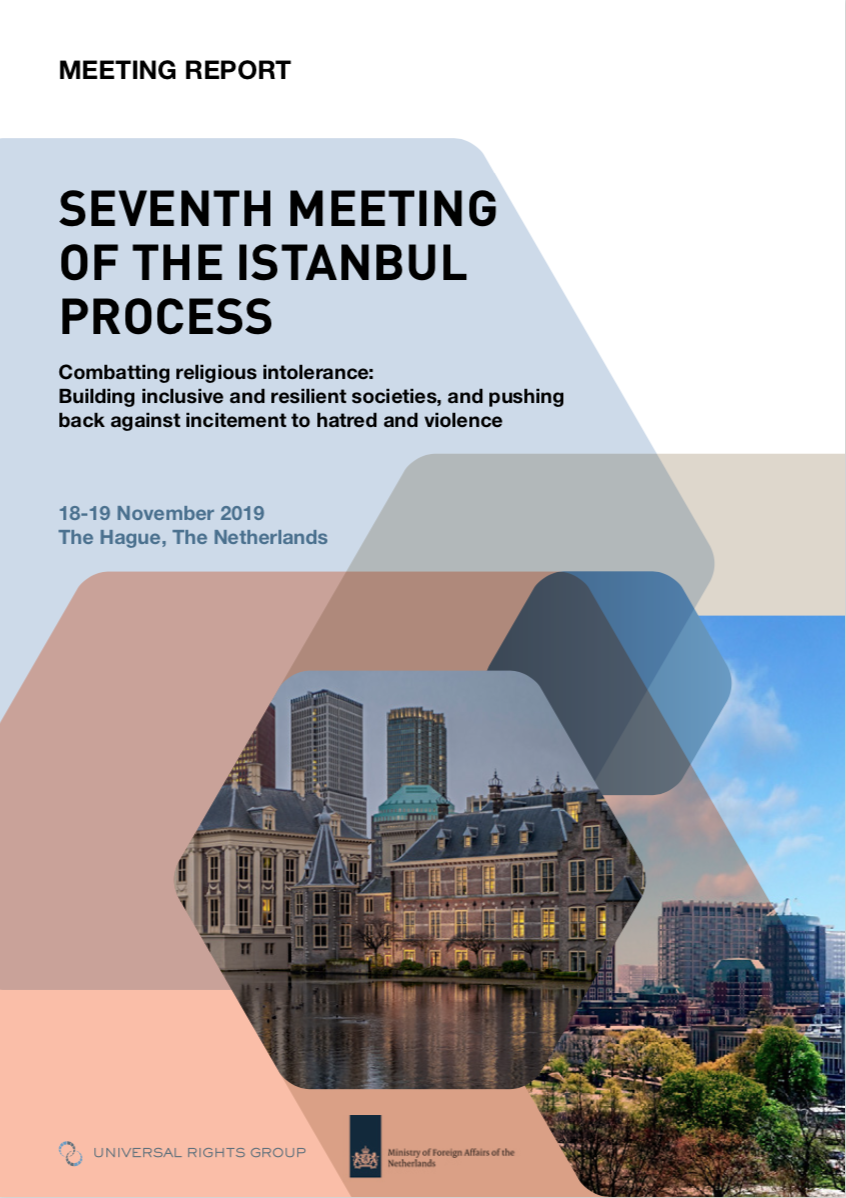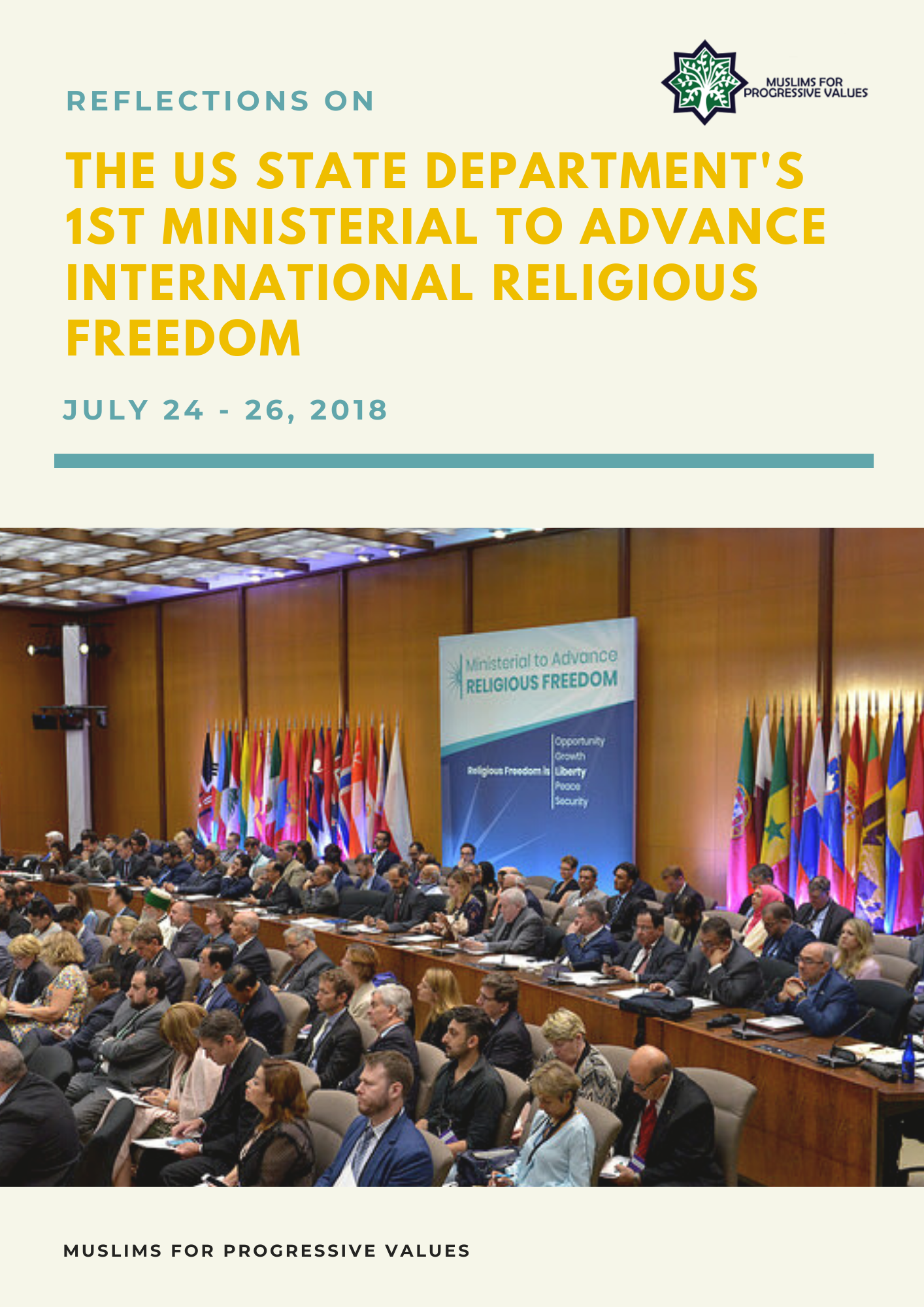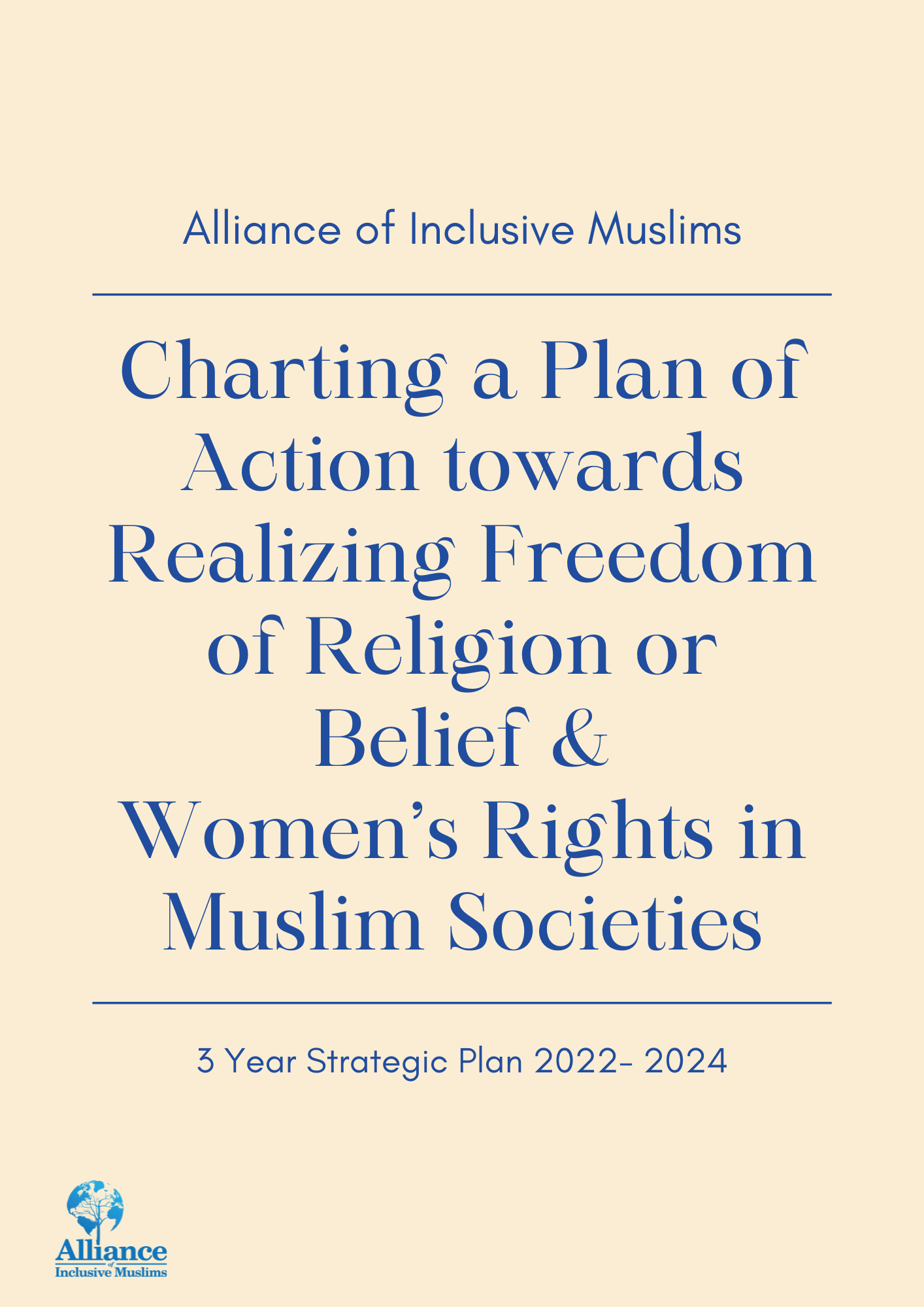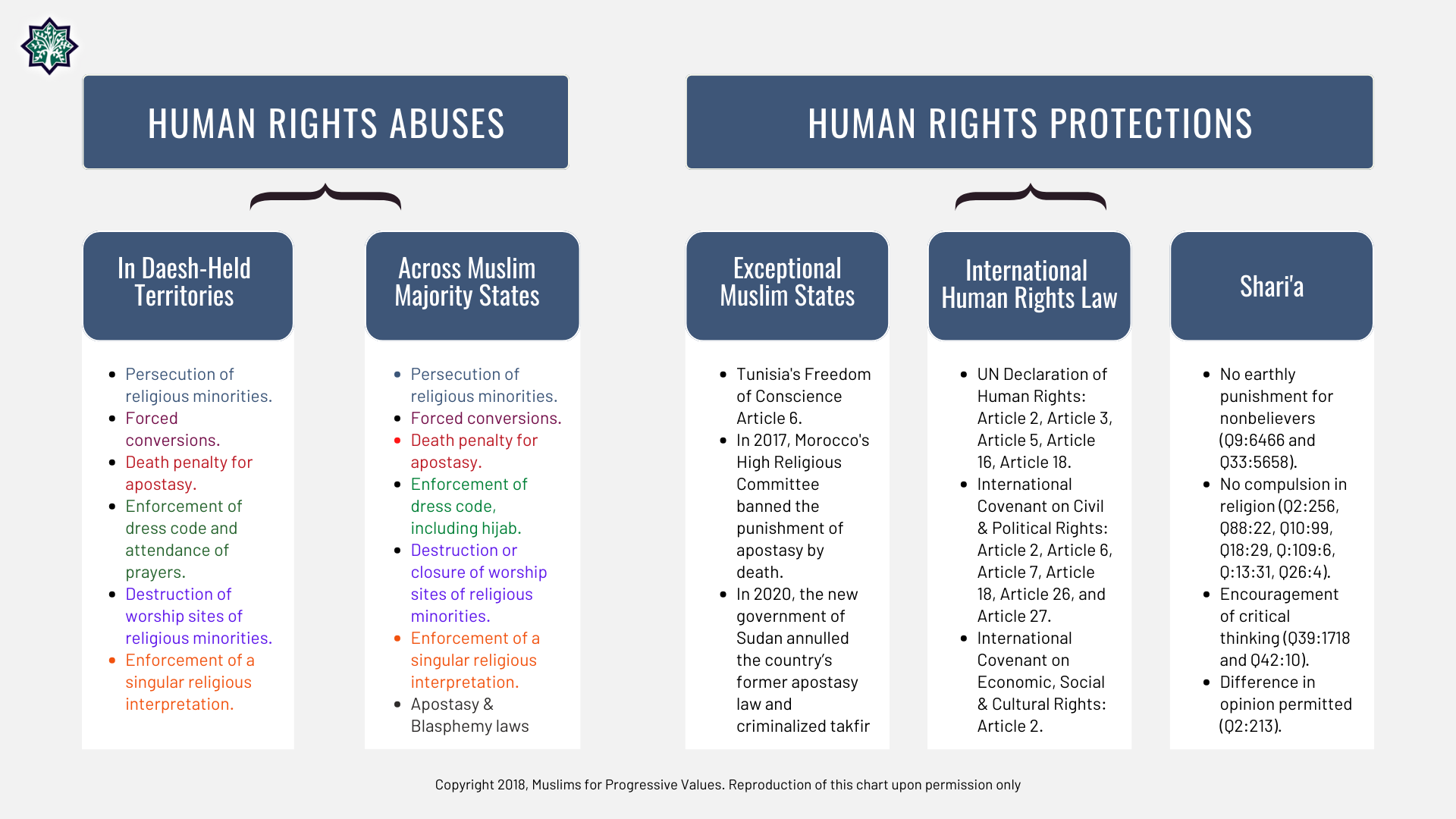MPV’s Stance on Religious Freedom and belief
We at MPV believe freedom of personhood and conscience are not only essential to all human societies but integral to the Qur’anic view of humanity. All citizens of the world have every right to freely negotiate their faith without fear of threat, punishment, or torture, and to live a life with dignity and with freedom of conscience as the Qur'an demands. Accordingly, we affirm that separation of state and religion is the only way to achieve the Islamic ideal of freedom from compulsion in matters of faith, especially if we wish to see purposeful and inclusive sustainable development and peaceful and harmonious communities across our global society.
Religious Freedom in the Qur’an and Hadith
One of the core aspects of MPV’s mission is education on the various progressive issues we have identified as key to the Progressive Muslim movement. Without accessible and easily understood content though, education of the general public, (Muslim and non-Muslim), is impossible.
In an effort to educate individuals on the compatibility of Islam and religious freedom we’ve created this one page resource to be disseminated across relevant audiences and communities. PDF copies are available for your convenience to download and utilize as you see fit, but we ask that credit be given to Muslims for Progressive Values at all times.
Religious Freedom in Islam: A Toolkit
On September 14, 2022, Muslims for Progressive Values held a workshop in Washington DC entitled “Addressing Apostasy and Blasphemy Laws in Muslim Societies.”
In the aftermath of this successful workshop, there was great demand for the information presented in the workshop, along with the various tools that the workshop covered.
The toolkit seeks to educate individuals on the compatibility of religious freedom and Islamic teachings and jurisprudence and empower individuals to advocate for religious freedom within their community and the larger world.
Addressing Apostasy and Blasphemy Laws in Muslim Societies Forum
On September 14, 2022, Muslims for Progressive Values held a public forum, “Addressing Apostasy and Blasphemy Laws in Muslim Societies” in Rayburn House Office Building on Capitol Hill. During the presentation, we addressed the the practice of criminalizing the religious beliefs of others through apostasy and blasphemy legislation, which violates the fundamental teachings of Islam as well as the Universal Declaration of Human Rights, which enshrines the right to freedom of religion, belief, and thought to all individuals. We also addressed various tactics to use, including counterspeech, when it comes to addressing apostasy and blasphemy laws and accusations of apostasy and blasphemy that are often targeted at progressive and feminist Muslims.
Presentation Slides
If you are interested in accessing the slides from the presentation, please complete the form below to receive the presentation in full.
MPV Reports on Freedom of religion and belief
MPV has organized and participated in a number of conferences and symposiums that center on the innate right of freedom of religion and belief. Read the reports in full by clicking on the Read More buttons.
“I worship not that which you worship, nor will you worship that which I worship. And I will not worship that which you have been wanted to worship, nor will you worship that which I worship. To you be your way, and to me mine.”
Resources on Freedom of Religion and Belief
Office of the Ambassador at Large for International Religious Freedom
Apostasy in Contemporary Islamic Thought by Amel Grami
Critical-Progressive Muslim Thought: Reflections on Its Political Ramifications by Adis Duderija
Religious Freedom in Islam: The Witness of the Qur'an and the Prophet by Abdullah Saeed
Freedom of Expression in Islam
Challenging Apostasy and Blasphemy Laws edited by Muhammad Khalid Masud, Kari Vogt, Lena Larsen and Christian MoeNo Compulsion in Religion: Islam and the Freedom of Belief by Dr. Usama Hasan
The Covenants of Prophet Muhammad (PBUH)
The Covenants of Prophet Muhammad (PBUH) refer to numerous documents dictated and sealed by the Prophet with various religious groups across the Arab peninsula during his life. For more information about the Covenants, we encourage you to visit the website of John Andrew Morrow, a scholar of the topic.










MPV’s Stance on Takfir
At MPV we are fundamentally opposed to the use of takfir as a way to justify violence against other Muslims and their religious practices, and as a means to negate and demonize the religious practices of other faiths as well as that of non-faiths. Following Quranic mandate and Hadith, we recognize that neither of these Islamic sources offer justification for takfir and instead condemns the practice itself as a grave sin. We encourage you to learn more about how the practice of takfir is in direct conflict with Quranic teachings in our Takfir Series, below.
Part I: Introduction to Takfir










Part II - The Roots of Takfir










Part III - Takfir and Islamic Jurisprudence










Part IV - Takfir Case Studies Part I: Minority Groups










Part V - Takfir Case Studies Part II: Countries and Individuals










Part VI - Takfir Case Studies Part III: Progressive Muslims & Ex-Muslims










Part VII - Muslim Governments and Takfir Laws










Part VIII - Takfir: A Violation of Human Rights











